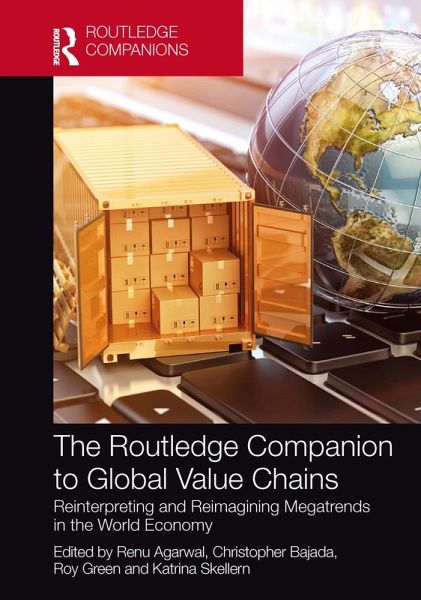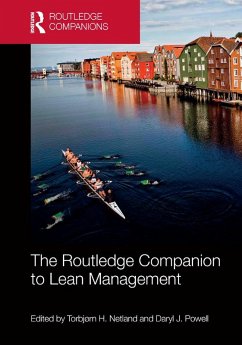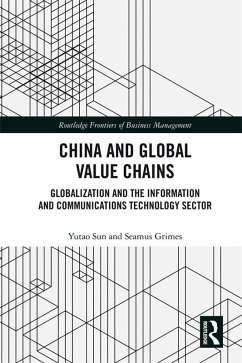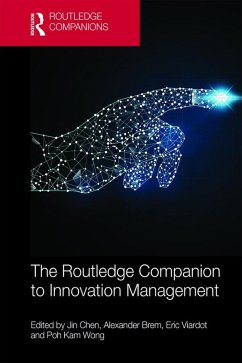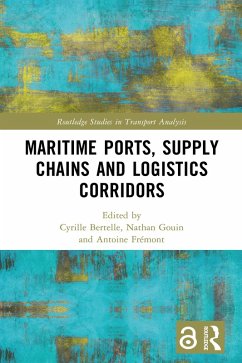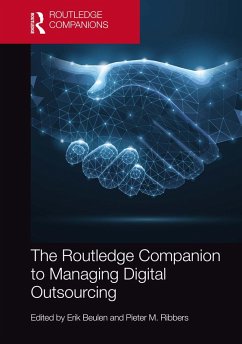"The rise of Global Value Chains in the 1990s and 2000s has transformed international trade. Today, about 70% of global trade flows through GVCs. This has a large impact on trade policy and the tools available to policymakers for shaping international trade. This handbook is a great resource for researchers and policymakers to navigate their way through the complexities of GVCs and design better and more accurate solutions to the challenges of today."
Xiaozhun Yi, Deputy Director-General, World Trade Organization, Geneva, Switzerland
"The Covid-19 pandemic showed us the importance - and fragility - of global value chains and the need to rethink our established paradigms. This handbook assembles the who's who of
researchers, analysts, strategic thinkers and doers in the field of supply chain management in a global context. What interests me most is the role intangible assets such as management practices, collaboration and dynamic capabilities in global value chains. We've always known intangible assets are an essential ingredient of a successful supply chain - as it turns out, their importance is amplified during these challenging times. This handbook provides a solid overview of the state of the art in this field and has plenty of inspiration for future GVCs design and management which will inspire future research and practice alike."
Tim Reed, President, Business Council of Australia, Australia
"Over the past decade, my position at OECD has allowed me to witness how global value chains analysis has profoundly changed policymaking at national and international level. This authoritative book provides an excellent account of where the concept comes from, why it matters, how it is changing and the implications for different policy domains. Perhaps most importantly, the book also offers relevant insights on future trends from the best experts in the field."
Andrew Wyckoff, Director, OECD Directorate for Science, Technology and Innovation, Paris, France
"Today, global value chains are evolving because of trade wars, technology, demands for more inclusiveness and sustainability, and now COVID. Given the importance of global value chains in trade, and the importance of trade for development, it is key to understand the new dynamics driving them. This book provides an incredible analysis of the new trends, their drivers, and the way forward. It is extremely timely as changes are happening now and it is critical to provide sound advice to policymakers in the developing world based on thorough analysis and evidence. Having been at the World Bank Group for over 20 years providing trade policy advice to countries around the world, this book is a necessary input into the current debate on the role of trade in development and how best to go about recalibrating globalisation, to take new factors into account."
Mona Haddad, Practice Manager, East Asia and Pacific, Trade & Competitiveness, World Bank Group, Washington DC, USA
"In today's turbulent and uncertain world, the challenges facing organisations dependent upon global demand and supply networks have never been greater. This timely and scholarly book brings new insights into how global value chains need to be re-shaped to adapt to the changed conditions that they must confront."
Professor Martin Christopher, Emeritus Professor of Marketing & Logistics, Cranfield School of Management, Cranfield University, UK
"Bringing together the wide and diverse field of global value chains into a single, comprehensive and insightful text is a daunting challenge. Yet, this is exactly what
The Routledge Companion to Global Value Chains handbook does. With Covid-19, this is a hugely important area and this handbook contains chapters from some of the leading academics and practitioners in the field covering a range of topics such as the historical evolution of global value chains, its theory and practice, future megatrends in GVCs amongst many. Based on my 20 years of teaching and research experience in the area of supply chain management, this handbook is great and compelling to read, which I wholeheartedly recommend."
Professor A Gunasekaran, Dean and Professor, School of Business and Public Administration, California State University, USA
"When emphasizing today the need for a digital transformation of organizations and industries, we sometimes overlook that we predominantly live in a material, physical world that is built on a complex global network of supply chains moving physical goods around the world (and, soon, into and from space as well). This handbook provides a solid introduction into the principles, models, and success factors of this field - also illustrating how digital technologies are creating smart supply chains utilizing information and communication technologies in novel ways."
Professor Frank Piller, Professor of Management and Co-Director, Institute for Technology & Innovation Management; Scientific Director, Institute for Management Cybernetics (IfU e.V.), RWTH Aachen, Germany
"As we emerge into the new world - either post Covid or living with Covid - the fabric of our economic interactions are forever changed. The success of strong global value chains in a world grappling with technological change, increasing protectionist sentiment and the need to upscale industry are now more important than ever in driving our economic success, building competitiveness and developing our skills base. In these times of challenge and opportunity, this collection is more needed than ever for policymakers, business leaders and decision makers."
Innes Willox, Chief Executive, Australian Industry Group, Australia
"Global Value Chains make up over two thirds of global trade. Yet despite centuries of evolution and rapidly developing digital systems, Global Value Chains are inherently unstable - continuously evolving to market and technology drivers and mega trends. Will global mega trends such as offshoring be reversed by new technology such as blockchain and Industry 4.0? As demonstrated in 2020 - unplanned events can throw even the best plans into disarray. This book provides a survival guide."
Professor Graham Wren OBE FREng, FIMechE, FIET, FCIM, FIoD, FRSA, EurIng, CEng, CDir, CMar, Special Advisor to the Principal and Major Projects Director, University of Strathclyde, UK
"This volume is comprehensive and deeply steeped in both theory and practice. Readers will quickly come to appreciate that value chains are the heart of wealth creation and that their effective design, management and improvement are core to economic, environmental and societal progress. We learn from the studies and contributions of this book that globalisation has many ongoing challenges and opportunities that manifest in both risks and returns, such as new technologies. The contributions on megatrends in global value chains are particularly insightful, as both practitioners and researchers will be able to use these to project forward from today's challenges into the future. Congratulations to the authors and editors on integrating this body of knowledge."
Professor Danny Samson, Department of Management and Marketing, University of Melbourne, Australia
"The opportunity for investment and participation in local and global supply chains - particularly for SMEs - will continue to increase, with a shift to competing on value rather than cost, and through unique and service-based business models. This handbook comes at an important time - supply chain disruptions and uncertainty creates opportunity for those who can competitively and collaboratively embrace Industry 4.0 technologies to design, manufacture and build service platforms for local and global markets."
David Chuter, CEO and Managing Director, Innovative Manufacturing Cooperative Research Centre, Australia
"Given the incredible turbulence in trade, understanding global value chains is so topical and even more important than ever as we emerge into the new world - either post Covid-19 or living with Covid-19. The fabric of our global economic interactions are forever changed. This handbook provides an excellent account of various theoretical concepts, why they matter, their enablers which help identify implications for different policy domains. This handbook as a knowledge resource is even more pertinent especially when the new factors of intangible resources such as management practices and dynamic capability are deemed essential in modern days. No matter what, this book provides an ideal map for academics, researchers, practitioners and policymakers on how best they should go about transforming and recalibrating globalization."
Professor Nicholas Bloom,
William D. Eberle Professor of Economics, Stanford University, USA
"Recent events have added new considerations to established trends in supply chains the world over. The days of efficiency above all are now behind us - with resilience and sustainability now crucial elements of a supply chain for a single business, an industry sector or indeed a country. This well-researched book is timely for those wanting to re-evaluate the value delivered through Global Supply Chains in the light of today's challenges."
Andrew Stevens, Chairman, Industry, Innovation and Science Australia, Australia
"This is a comprehensive coverage of theory and practice of Global Value Chains providing more or less everything that one needs in a single source - from the historical evolution of GVCs to the current mega trends and how GVCs will transform because of the COVID-19 pandemic. Chapters written by leading academics and practitioners provide up-to-date coverage of topics. As a researcher of GVCs or a practitioner/policymaker involved in GVCs - this handbook is all that you will need!"
Professor Amrik Sohal, Department of Management, Monash Business School, Monash University, Australia
